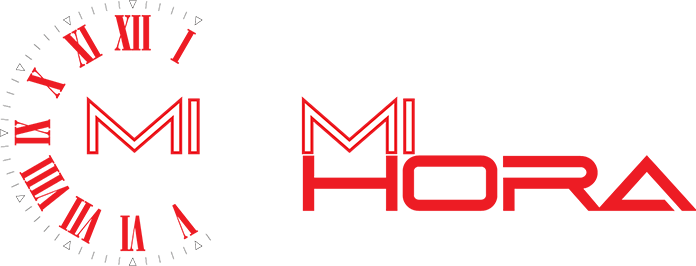Advertisement

Artificial Intelligence has taken the reins and universities are at the forefront as they equip students with the right tools to navigate the next revolution.
“I believe that AI [Artificial Intelligence] is going to have the same impact that the global network has had,” said David A. Armstrong, St. Thomas University’s president. “I believe it’s going to be very big. I do believe that the dangers are there and could be very catastrophic if we don’t have some guidelines and ethical considerations around AI, but certainly the potential to use AI and have it be successful and have it help society and humanity is just as big as the potential for the internet when it first came across. It’s changed everything.”
When ChatGBT began to gain popularity and it was being discussed that students would begin to use the AI system for research papers and work, said President Armstrong, the choice to either shy away from it or embrace it presented itself.
“I challenged my faculty at the university and at the law school to be at the forefront of the issues of ethical considerations and guidelines and standards for the ethical use of AI,” he said. “Why? St. Thomas University is a Catholic university that has a value-based education and within our Catholic intellectual tradition, seeking out all answers no matter where it takes us knowing that in the end, God is at the center,” he said. “We need to have values in what we do. We need to have ethics in what we do. We need to have a moral code in what we do.”
AI has been present for a while, said Dr. Ricardo Jimenez, chair of the math and computer science department and associate dean of undergraduate studies at Barry University. The algorithms used for machine learning have been there for a number of years.
The difference now is the algorithms are more efficient, said Dr. Jimenez, “but there’s also voluminous amounts of data that can be used to … guide the AI in terms of the way the neural networks work, and they’re not all neural networks, but the vast majority.
“I think what’s happened is AI has been accelerated by the release of ChatGPT and now Gemini and a few others,” Dr. Jimenez said. “People are beginning to see … in essence it’s the next generation of computing.”
AI is used for a vast number of tasks, and it has found itself playing a pivotal role in many students’ academic life.
“As far as it being in higher education, it’s definitely permeating into higher education and for good reason: it has a lot of positive things that can benefit the students,” said Dr. Jimenez. For example, a student working on a research paper can have AI find journals on the subject.
“You can generate guidelines, outlines, you can generate additional support supplementing the learning experience,” Dr. Jimenez said. “You can do reflections. There’s so many things that students can do that will benefit their learning abilities and their metacognition, their ability to even understand how they’re thinking and reaching conclusions and things of that nature.”
The concern for AI and ethical use is a topic that many believe go hand in hand.
Ultimately, it depends on how students decide to use AI, said Dr. Jimenez. “One of the things that we’re seeing a lot of in universities, and colleges in particular, is discussing some of the ethical issues and concerns that we’re seeing. But in many ways, these concerns are not new, just like machine learning is not new.”
Plagiarism has been a significant problem since the advent of Wikipedia, the internet and more sources that can be copied, said Dr. Jimenez. However, plagiarism from different sources, including ChatGPT, can be detected with platforms such as Turnitin, which is a similarity detection service, “and it boils down to – this is why we’re putting it into the classroom curriculum, especially in the ethics technology course – it really boils down to an ethical issue. Do you want to cheat is really what it boils down to and, yes, with ChatGPT you have the ability to cheat, but it’s just [not the] ethical and the right thing to do.”
Educators can also benefit from the use of AI, said Dr. Jimenez. Professors can create lesson plans and generate quizzes and exams.
“You can routinize and automate a lot of tasks and provide specific feedback to the student, not feedback in general to the classroom, but being able to analyze what each particular – again, back to metacognition – where’s the student deficient in, what is the area that needs to be reinforced,” he said, “and that’s a very powerful thing if we can target it down to the student level – and we can, [by] using the various tools that we’re talking about.”
The technology has become more popular.
Artificial Intelligence was all around, we just didn’t notice, said President Armstrong. Now that AI is allowed to be used by the masses, it has gained more popularity.
“When the internet was invented it was designed first for military use and governmental use and then, once it opened up to the masses, that’s when you saw all the innovations and all the problems, and so that’s what’s happening right now is: AI has been around, nothing new, but now the power of it is going to the masses,” President Armstrong said. “And that’s where we end up, again, seeing great possibilities, but then also having greater problems.”
Universities are aware of the double-edged sword that is AI and subsequently are offering students important tools to navigate the technology.
St. Thomas is launching an Applied AI certificate, said President Armstrong. Coursework is starting this summer. Students in any major can earn the certificate.
“We’re also developing tools and processes for the development of coursework and open educational resources that utilize AI tools as part of the workflows to add efficiency and accuracy to these processes,” President Armstrong said.
Barry is also gearing up as it prepares to provide students with more knowledge on the topic.
“We’re currently in the process of creating a bachelor’s degree in data science,” said Dr. Jimenez. Data Science is a broad umbrella that covers AI. Two primary subject areas that fall under data science are AI and data analytics. The hope is to begin the bachelor’s degree in data science in fall 2025.
“Currently we have specialization, [in] which we teach the students an introduction to Data Science where they get a little taste of AI,” said Dr. Jimenez. “They take courses in visualization and data analytics, and then they take a machine learning course that is strictly a course [in which] they focus entirely on the algorithms and how AI is created, what are the different types of AI, how can we program using hands-on approaches, experiential approaches – by programming our own neural networks – that are AI networks using Python, for example. That course specifically focuses on AI, and it’s part of a specialization for computer science students.”
An important aspect to remember is AI cannot be viable on its own and is a subset of Computer Science, said Dr. Jimenez.
“It’s often thought of ‘maybe I’ll go out and get a degree in AI’,” said Dr. Jimenez. “Well, to do that, you have to have the fundamentals first. In particular, you need to be able to understand data structures, algorithms and things that computer scientists do. This is why we have it as a supplemental part of the major.”
An ethical component is also being taught and will be incorporated into the data science degree, said Dr. Jimenez.
All new technology is accompanied by unintentional consequences, he said. There are many “that need to be looked at in terms of bias, in terms of using incorrect information, incorrect data and things of that nature.”
The ethical component is taught in the ethics and digital technology course that is required for all computer science and math majors, said Dr. Jimenez.
“Every semester, the amount of time that’s dedicated to AI has been increasing over the last year or so,” he said. This uptake is related to student interest and the evolution of AI.
Additionally, he said, a section of the machine learning course discusses “AI bias and ethical issues in general with AI security issues, privacy issues and where the data is coming from, copyright issues … things that need to be addressed.”
St. Thomas has held various events on campus regarding AI, said President Armstrong. One was the ‘multidisciplinary panel discussion about AI and its impact on higher education.’ “This was a combination of the main campus and law school faculty merging their experience to present on this topic.”
Another event was the ‘Student Insights: Exploring AI in Education,’ in which there was a “professional development session with a student panel sharing experience[s] with AI, so the faculty got to hear from the students on how they picture AI and how they use AI in their studies. The faculty then gained insights on the impact of learning and explored the ethical considerations from the students’ perspective and AI’s current role in the future of education.”
As technology has evolved, what is expected from students is projected to change along with it.
Right now, digital competency is sought as a requirement, said Dr. Jimenez. However, possibly in the next year or so, people have to begin thinking about Artificial Intelligence competency as a requirement to graduate, he said. We’re beyond digital competency as most of that is learned in high school, he said. Perhaps the new digital competency may become AI.
“I think there’s interest [in AI] because there’s a lot of curiosity,” said Dr. Jimenez. “From a higher education point of view, there’s nothing more beautiful than curiosity, because that’s what this is all about. It’s about thinking and coming up with ideas and synthesizing ideas and having that curiosity to want to learn. I think because it’s so novel, people want to know, people want to learn.”






More Stories
Classified Ads
Subsidies push stalls for long-awaited American Dream Mall
Miami Dade College enrollment booming